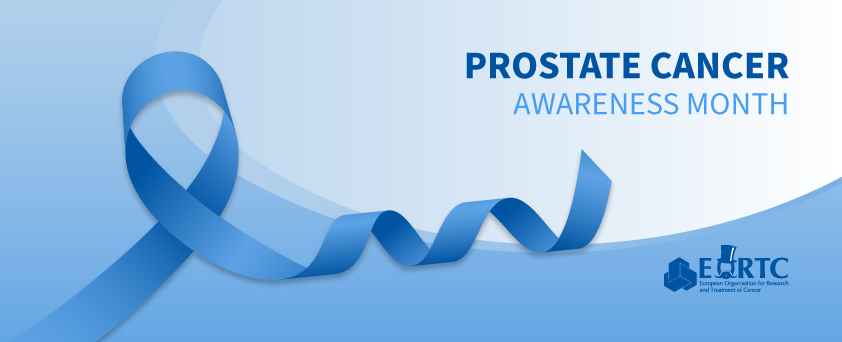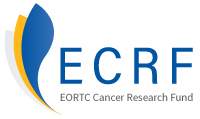Prostate Cancer: EORTC updates

November is Prostate Cancer Awareness Month. 1 in 7 men will be diagnosed with prostate cancer in their lifetime.1 The prostate gland, found only in men, is situated between the bladder and the rectum. Prostate cancer is the most common type of cancer diagnosis among men in Europe. Most recent numbers suggest that there are around 450,000 new prostate cancer cases each year in Europe and yearly this is about 24% of all new cases.2
The EORTC Genito-Urinary Group
EORTC has established groups to handle tumour specific research, like for prostate cancer. These groups work to ensure no cancer patient is left behind. The clinical research evaluates treatment methods and uses multidisciplinary strategies to develop new standards of care that increase survival and quality of life for cancer patients. The EORTC Genito-Urinary Group has 441 members as of 2020 and works to meet the challenges posed by prostate cancer and other cancers of the urinary tract and male reproductive system. The group focuses on clinical research for prostate cancer while actively researching on rarer diseases and biomarker-driven research.
The prostate cancer academic clinical trial
One of the promising ongoing EORTC Genito-Urinary Group clinical trials on prostate cancer is the PEACE III study (EORTC-1333). The study investigates the effect of adding bone-protection to chemotherapy for prostate cancer. Previously patients with prostate cancer that could not be halted by lowering testosterone levels (castration-resistant cancer), and where the cancer spread (metastasised) to their bones, were treated with the chemotherapy drugs Ra-223, enzalutamide, and abiraterone. Evidence indicated that giving Ra-223 together with one of the other two drugs as soon as bone metastases appeared might be beneficial. A previous EORTC trial was halted when it became clear that giving Ra-223 with abiraterone significantly increased the risk of patients suffering bone fractures. Following this finding, new guidelines were issued stating that medication to protect the bones should be added whenever Ra-223 is given.
The PEACE III trial started to compare outcomes of the use of Ra-223 plus enzalutamide with enzalutamide alone in castration-resistant patients with bone metastases. The researchers studied results from the patients who had started treatment earlier, before the introduction of bone protection, and found that one year after treatment the risk of fracture in the group who received the drug combination was considerably higher than in those who received enzalutamide alone. More interestingly, they were also able to see that with the later addition of bone-protecting treatment, this risk had almost disappeared, and thus confirm that bone protection gives patients a better quality of life. The PEACE III trial is continuing, and full results from the comparison of the two treatments plus bone protection will be available after the trial is completed.
Prostate Cancer Awareness Month: EORTC Webinar
For more information about prostate cancer and EORTC’s work on quality of life for prostate cancer patients, check out this recording of a webinar hosted by EORTC, where questions about prostate cancer were answered by Dr Jose Pablo Maroto and Sara Garcìa Serrano.
Dr Jose Pablo Maroto is a Medical Oncologist, the Head of the Urologic Oncology Unit at the Hospital de la Santa Creu I Sant Pau in Barcelona and the chair of the EORTC Genito-Urinary cancer work group. Sara Garcìa Serrano is the Centre Head and Psycho-oncologist at Kalida Sant Pau Centre.
1 “Cancer.” World Health Organization, September 2021.
2 Rawla, Prashanth. “Epidemiology of Prostate Cancer.” World Journal of Oncology, 2019, 63–89.
To learn more about our work, check out EORTC’s cancer clinical research. For more information or questions email us at ecrf@eortc.org.
You can also help support EORTC’s game-changing clinical research to unleash scientific breakthrough and transform cancer patients’ lives. Learn how to GET INVOLVED, or Make a Contribution Now.







Get Social